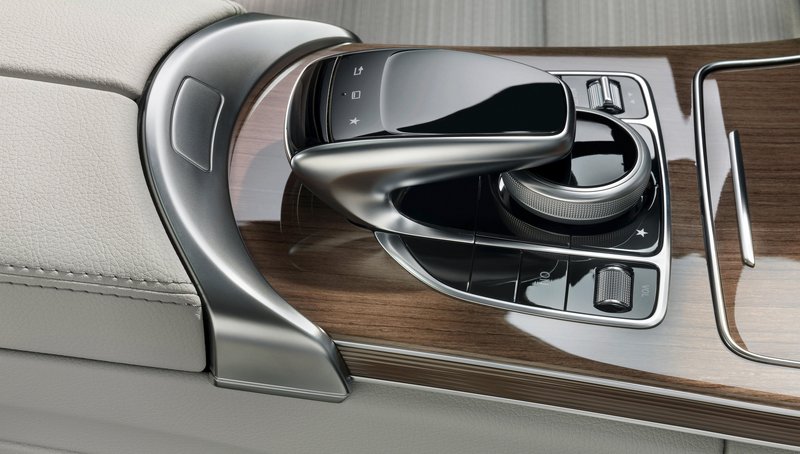Daimler honors Continental for Touchpad in New Mercedes-Benz C-Class
- New C-Class features innovative touchpad from Continental
- Professor Thomas Weber, member of Daimler's Board of Management, congratulates Helmut Matschi, member of Continental's Executive Board, on the continuous further development of key vehicle technology
- Touchpad with active haptic feedback helps boost driving safety
Babenhausen/Stuttgart, February 28, 2014. At the "Daimler Supplier Awards" ceremony, Professor Thomas Weber, head of Group Research and Mercedes-Benz Cars Development for Daimler AG, yesterday presented international automotive supplier Continental with the "Special Award for Innovation". The honors were for the touchpad in the new Mercedes-Benz C-Class. The award was handed over to Helmut Matschi, member of the Continental AG Executive Board and head of the Interior division, during a ceremony in the Mercedes-Benz Center in Stuttgart. In his laudation for the innovation award, Professor Weber acknowledged the pad's multi-touch capability, the gesture-based control this makes possible, the extraordinary design, and the high product quality achieved in such short development time. "The touchpad of the new C-Class is as easy to operate as a smartphone. It also allows characters to be input by handwriting in many languages and delivers clear haptic feedback. It constitutes a milestone on the road to truly intuitive use!" The new system will form part of the human-machine interface (HMI) in the new Mercedes-Benz C-Class when this model series hits the market. In the future, other of the automaker's model lines will also use the touchpad.
"From our collaboration with Daimler, we know that the premium manufacturer sets the very highest standards in all of its vehicle developments. Here our innovative touchpad ties in excellently well in that it intuitively assists drivers with their driving tasks," explained Helmut Matschi after the awards ceremony in Stuttgart. "For us, the touchpad in the new Mercedes-Benz C-Class also constitutes an important step toward holistic HMI. The aim is to allow car drivers to intuitively comprehend what they need to know. It is a dialogue without words. The vehicles of the future are expected to anticipate what information drivers require in the respective driving situation."
Touchpad of the new Mercedes-Benz C-Class
Since the first eddy-current tachometer was invented in 1902, Continental has been working on continuously improving HMI in vehicles. One of the most important questions nowadays is: How can a growing number of safety and convenience features be operated in a vehicle without distracting the driver? For the new C-Class from Mercedes, the experts at Continental and Daimler have embarked on what is very literally a tangible new approach to HMI in vehicles. The team comprising engineers and ergonomists has developed a touchpad with active haptic feedback.
In the new Mercedes-Benz C-Class, this touchpad is elegantly integrated into the center console. This ensures that it can easily be operated by drivers without taking their attention away from the road. The touchpad is operated via a touch-sensitive surface. These new features likewise illustrate the increasingly important role software plays in vehicles. Employing special software, the touchpad can tell whether the surface has actually been touched intentionally to operate the device or due to a chance movement. The touchpad will be used in the C-Class mainly to control screen menus. The ingenious feature of the touchpad is that it confirms a driver's action with tactile pulses – similar to what you would experience with a button.
Study by the University of Kassel proves customer benefits
Back in 2013, Continental published the results of a test study as part of its generic advanced development for new HMIs. Conducted by the University of Kassel, the study focused on the effectiveness of certain touchpads. "The touchpad with active haptic feedback demonstrated a significantly positive effect in the study," says Professor Ludger Schmidt, head of the Human-Machine Systems Engineering group in the Mechanical Engineering Department at the University of Kassel. "On average, a driver's gaze is diverted away from traffic 23 percent less when haptic feedback is activated. And the elicited control tasks were performed on average 33 percent faster than without active haptic technology."
